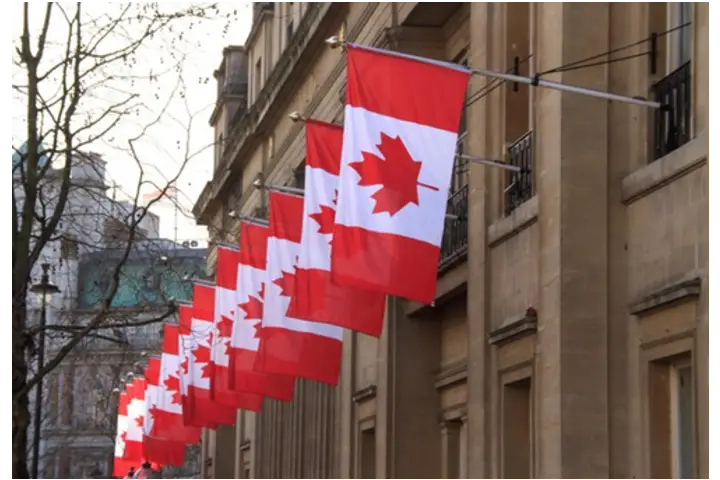

Canada's economy under stress (Image courtesy: IANS)
Will Canada’s economy be further impacted as the country suddenly finds itself in the midst of multiple problems? While the housing crisis among other things has dealt a blow to the country’s economy, rising unemployment has become another headache. The unemployment rate in August at 5.5 per cent remained unchanged from July but the figure has risen from 5 per cent in January.
Now with Canada’s economy contracting by 0.2 per cent on an annualised basis in the second quarter of the year – much below market expectations of a 1.2 per cent growth, the situation could just get worse. Most analysts opine that Canada’s deepening housing crisis and thinning of fresh investments are unlikely to be resolved soon.
A report by Fraser Institute, a Canadian public policy think tank published in July noted that Canada’s economy has grown significantly slower than that of the United States, suggesting that the origins of Canada’s growth crisis are domestic. Moreover, slower growth in Canada has originated mostly in declining business investment and exports, the sectors of the economy that embed innovative technologies and reflect the competitiveness of Canadian businesses.
In particular, policies such as more government spending and relentless monetary stimulus provide at best a short-time fillip to growth, but depress long-term potential, especially through their negative impact on business investment, the report said.
Canada, at this point would need all the growth engines to fire but its recent diplomatic standoff with India following the allegation that New Delhi was behind the killing of Hardeep Singh Nijjar, a Canadian citizen and chief of the banned Khalistan Tiger Force (KTF) could prompt many Indian students interested to pursue higher education outside India to look at countries other than Canada. Indian students, comprising more than 40 per cent of the overall student cohort in Canada, have been pouring millions of dollartrs into the country’s economy. In 2022, a total of 226,450 visas were granted to Indian students.
Canada has also come under the spotlight for honouring Yaroslav Hunka, who was part of the Nazi unit during World War II. The incident which took place in the Canadian Parliament, where Ukraine’s President Volodymyr Zelensky was present, not only angered the Jewish community across the world but Canada’s allies have also had to distance themselves on this issue. Despite Canadian Prime Minister Justin Trudeau offering an “unreserved” apology for the “terrible mistake,” it has put Ottawa’s policies under the spotlight.
The housing crisis has been fuelled by a disproportionate surge in property prices across Canada—affecting the youth and the poorer section the most. Driven by a shortage in housing, rentals and mortgage costs have continuously risen.
“At a time when Canada is facing multiple issues at home, it has invited more troubles, though these are not directly linked to the country’s economy, there is always a chance that these could indirectly have an impact on the economy,” an analyst said.
“For Trudeau, the priority should have been the domestic issues and not spats with rising powers” he said.
Also read: After Trudeau’s unsubstantiated attack, India has a chance to rebuff bullying by the Anglosphere
Minister for Electronics and Information Technology Ashwini Vaishnaw said on Friday that the government is…
Renowned human rights activist and political analyst Amjad Ayub Mirza has expressed a strong denunciation…
As was widely expected, the Indian economy grew by 6.5 per cent in real terms…
World No Tobacco Day, marked annually on 31 May, addresses a major public health challenge--the…
Defence Minister Rajnath Singh, addressing officers and sailors onboard India's first indigenous aircraft carrier INS…
The leadership team from the Central Tibetan Administration (CTA) arrived in Tokyo to participate in…